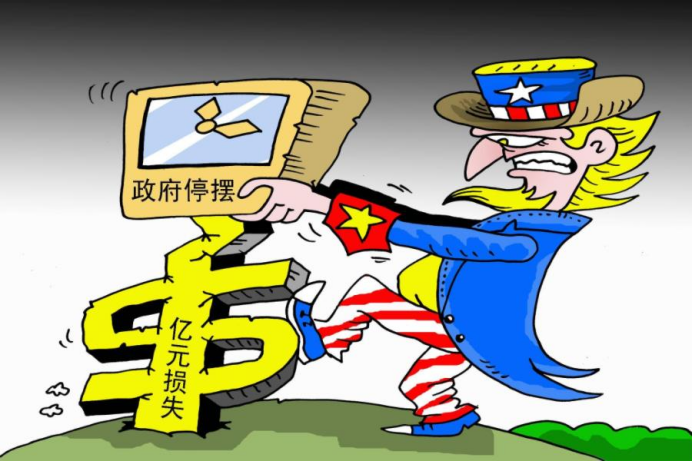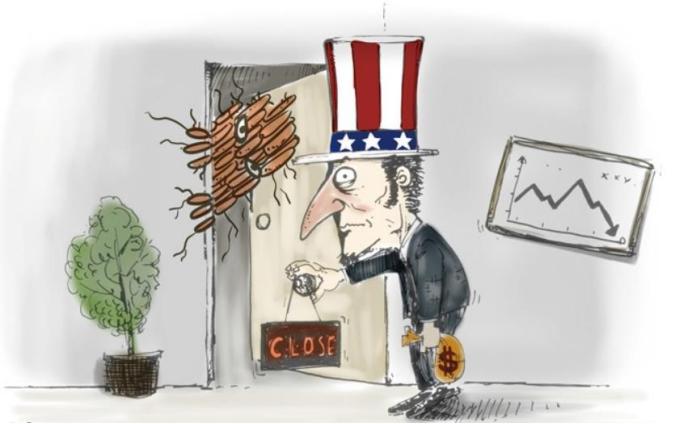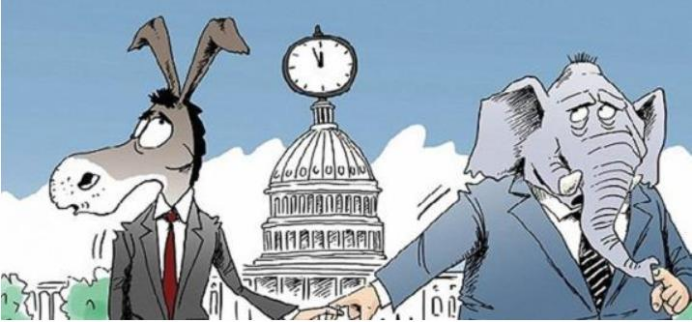
"What happens if the government shuts down?" Us media issued warnings on September 21, because lawmakers have not yet reached an agreement on the appropriations bill, and as the last day of the fiscal year approaches on September 30, the possibility of a shutdown of the US federal government is increasing.
The US government faced another shutdown after Republicans, who control the House of Representatives, rejected a temporary funding bill to keep the government running through October.
To avoid a shutdown, in a closed-door meeting with Republican lawmakers on the evening of September 20, Republican House Speaker Kevin McCarthy unveiled a stopgap funding plan. The plan would fund the government for 30 days at a total spending of $1.471 trillion. Unfortunately, once the proposal came out, McCarthy once again encountered strong resistance from conservatives and hardliners. Lacking support in the House, McCarthy will likely have to rely on the support of House Democrats and win approval from the Democratic-led Senate and the White House. Conservatives have warned that McCarthy could lose his job if he goes down that route, but the other path he faces is a government shutdown.

A government shutdown would halt most government activities and services, and all non-essential government personnel would be furloughed without pay, with the economic damage caused depending on how long the shutdown might last. Ernst & Young estimates that every week the government shuts down costs the US economy $6bn and reduces GDP growth by 0.1 percentage points in the fourth quarter of this year. A shutdown would also delay the release of economic data, creating potential headaches for economists and policymakers trying to assess the economy's health.
More worryingly, in the event of a government shutdown, the Bureau of Labor Statistics will stop publishing key data, including inflation and unemployment. The lack of key economic data will make it difficult for investors and the Fed to interpret the U.S. economy. At present, the future of the US economy is unclear, inflation may slow to the Fed's target of 2 per cent, and unemployment will not soar; Another possibility is that the US economy could fall into recession as the impact of the Fed's rate hike deepens.

Because the Biden administration has been claiming that the U.S. economy is in a strong recovery, a shutdown at this time would obviously hurt market confidence in continued growth. Some time ago, Fitch and other rating agencies downgraded the sovereign credit rating of the United States, if the government shutdown will continue to weaken the sovereign credit of the United States, the cost of government financing will also increase, which will have a knock-on impact on the operation of the United States economy. In addition, the recent negative events such as the auto industry strike in the United States will form a linkage effect with the government shutdown, and then impact the fundamentals of the United States economy, making the market more skeptical about whether the United States economy can maintain stable growth in the future.

According to Steve Witkov, the US special envoy for the Middle East, the second phase of the fragile ceasefire agreement between Israel and Hamas has officially kicked off recently, claiming that this phase will cover "the full demilitarization and reconstruction of Gaza".
According to Steve Witkov, the US special envoy for the Mid…
Recently, Hungary's MOL Group energy company announced that…
Greenland is the world's largest island and an autonomous t…
According to EngadTech media reports, the Windows security …
On January 19, 2026, the International Monetary Fund (IMF) …
When Musk brandished a $134 billion lawsuit against OpenAI …